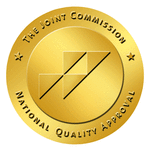
What is happiness in recovery? How do we know if we’re really happy or if we’re merely satisfied? What is the difference? How can we go from just getting through each day to really experiencing the most joy possible? While these questions are all good ones and are somewhat different, they are also quite a bit related. How so? They each have to do with our point of view.
When we first start off in recovery, what we generally find is that we’re pretty much consumed with the effort and energy required just to get through the day. It is all so new to us, and this applies whether this is our first time being clean and sober or our second or fifth or tenth or whatever. It can seem like the world is crashing down on us, that we cannot breathe, that there is too much to do and too little time to do it. Or, and this also happens to a number of individuals just entering recovery, the time stretches out endlessly and we can see no end in sight. Our life seems comprised of an eternity of must-do items, onerous and difficult tasks, and limited horizons and little in the way of possibilities.
This all changes over time, of course, but it is at the outset that we’re likely to be most bothered by the prospects we face – or the lack of prospects that we can see in the near future. We want to know how we can get over this hurdle, how long it will take, what we can do in the meantime to keep our sanity and, most of all, will it be worth it once we do go through all the effort, energy and time required?
Again, these are all good questions. They are the kinds of issues that have plagued almost all newcomers to recovery. This does not mean to imply, however, that they are any less important. What bothers any of us in recovery is something that needs to be tended to. Either we figure it out on the basis of trial and error or we ask for help from our 12-step sponsor and fellow group members in the rooms of recovery or our supportive loved ones and family members – or a combination of all of these. Until we find resolution to the things that stand in our way of happiness, we’ll continue to be bothered by them.
But, let’s assume that we’ve been able to come through the early stage of recovery, say, the first six months or so. We’ve gotten used to our daily schedules and are fairly comfortable doing the things we know we need to do to maintain our recovery. Sure, there are occasional difficulties that we have to deal with, things that come out of the blue and we have to stop everything and deal with them. These may be minor or major crises. When they occur, we need to focus our attention, energy and resources, on getting through and past them – without jeopardizing our recovery.
When things are going along relatively smoothly, when we are beginning to feel more comfortable in this new life in recovery that we have chosen, how do we ratchet up our happiness quotient? What can we do – minus the artificial stimulus of alcohol or drugs – to increase our ability to feel happiness? Some would say that it is only when we are able to look beyond ourselves and our immediate concerns and begin to look more toward what we can do to help others that we are able to be truly happy.
Maybe we don’t like the sound of that. Maybe it seems as though we’re going to have to be martyrs or suffer greatly on a personal level, giving all our time and effort to someone else. This is not at all what it means to be of service to others. It doesn’t mean that we’re taking anything away from our own recovery. On the contrary, it’s when we are doing the best we can for our recovery and are seeking to go beyond our current routine to incorporate something extra – some added activity or project that we do in order to help others and not just ourselves.
The side benefit of helping others is that it also helps us. So, there’s really no downside to being of service to another, when it comes right down to it.
How do we go about helping others? Where do we start? Is it difficult to do? Will it require a lot of time? There are an infinite number of ways that we can seek out and find how to do this. Some simple suggestions include taking the time to extend a hand in welcome and friendship to newcomers to the rooms of recovery, going up to someone who seems to need help and offering it – even if our offer is turned down at first. Try to see how we can brighten the day of another, even if it is just listening to their problems. Think back to when we needed help. Often, what we most needed was someone to listen to us, to offer us encouragement and support. It is this kind of service to others that we may be most able to provide – and with the least effort to start.
Bottom line: It isn’t what we do for others that matters most. It is the intent we have to do so. If we want to find ways to help others, we will figure out how to do so. And, in helping others, we will be adding immeasurable benefits to ourselves, in that we will begin to know real happiness.

 RSS Feed
RSS Feed
